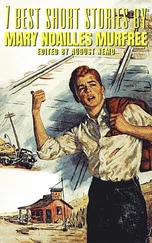“And all the girls love him!” said one.
“Oh, no!”
“Yeah! They’re, like, all over him!”
“That’s disgusting!”
I smiled. “I know just the kind of guy you mean,” I said. “They always get, and they never deserve.”
“Really!” They looked at me curiously.
“I fall for that kind of jerk myself,” I said, “sometimes.”
“No! Not you too!” But they looked interested.
“Only sometimes. Mostly, girls get over that when they get older. It doesn’t age well.”
“Yeah?” One of them looked at me with touching receptivity. He was an overweight kid with responsive eyes. He had an avid, artless delicacy that was striking in contrast to his big, ungraceful body and made him seem vaguely helpless, even though he was probably quite strong. He didn’t write very well, but he was a passionate student and so was a favorite of mine. He took me in with a wistful, subtle movement of his eyes. I felt him accept my fondness and shyly give it back. Without knowing it, he comforted me.
Still, I felt disgruntled when I returned to my apartment that evening. The cats walked around with heavy paws, looking as if life with me was taxing their animal tenacity. When the phone rang I picked it up only because I was expecting Erin to call. It was Kenneth, the sociologist.
“Have I caught you at a bad time?” he asked. “You sound a little . . . I don’t know. . .”
His voice was tight and complicated, like something faceted and finely wrought that had been compressed into a ball. Making this phone call had probably been difficult for him; I thought I should reassure him, but instead I did the reverse.
“Is it true that you were into the bruise on my leg?” I asked.
“I . . . what?” His voice sprang free from its wad a tad. “That’s absolutely ludicrous. I would never . . . I wouldn’t—that was Phillip on one of his imagination jags.” His voice expanded again, and I sensed a vast array of personality tensed to unfurl itself. “I just said I liked your dress. And your shoes.” He paused. “I did notice the bruise, though.” The last was said with a meticulous humility that I found endearing.
I told him I probably sounded nervous because I thought the situation was strange. “We haven’t really met after all,” I said. “Maybe you could tell me something about yourself.”
There was an unhappy little pause. “Well, let’s see. You know I’m a sociologist. And, uh, I collect stuff. I go out every weekend and find . . .” He coughed. “Look, I’d rather at least meet. It just seems. . . I mean, would you want to describe yourself into the phone?”
I wouldn’t. I told him that I knew he was married, and that if we did meet, it would have to be for friendship.
“Well, then,” he said, “how about a friendly dinner?” The hint of moroseness in his voice was like a slight, perseverant sigh.
I spent the two days between this conversation and our dinner in a satisfying ennui of classes, laundry, pointless walks and telephone calls. At night I would sit on the couch and read my students’ poems, with my feet on a chair and the old cat on my lap. In my bland contentment, the presence of the sociologist gave off an obscure little throb, an insignificant signal that nonetheless had to be monitored.
On the evening of our date, I decided to wear the dress I had worn for my two-hour appointment with Frederick. I noticed that when I put it on this time, it made me feel stately and secure. I had complicated thoughts on the relationship between one’s outer garments and one’s inner state, and the mysterious ways that each can affect the other. The doorbell rang.
Kenneth was tall and had close-cut blond hair like worn wool. He wore an exquisite suit. His shoulders were squared, but his neck and head were habitually in a posture of focus on the ground just before him, and because of that he seemed to be peering up at me when he was actually peering down. I invited him in. He cordially tucked his gaze back down and followed me. I told him I would only be a minute. He asked if he could look around my apartment and walked into my living room. From the back he looked smug and immaculate, but I doubted that he felt that way. He turned sideways; his spine was stiffly curved, and his chest was still and tense. “You live like a kid,” he said. But his tone was wondering, not unkind.
He opened the car door for me with a jaunty gesture, and there we were, close together in a small, sealed place. He said he hoped I liked French food. I said I did. He drove down the streets with what seemed abnormal care. There was vacuous delicacy between us.
“Does the situation still seem strange to you?” he asked.
“Yes, but it’s okay. It’s less strange than meeting somebody through a newspaper ad. It seems all dates get funny after some point in your thirties. It’s probably unprecedented and maybe even unseemly, all these middle-aged people with problems out on dates.”
“Do you have problems?” he asked.
“Oh, none at all.”
In silence, we recovered from my attempt at levity.
“I don’t care if it’s strange,” he said. “It’s just a nice thing for me to be on a date at all.”
His words gave off a high, sterling tingle. I felt they should’ve touched me, but they didn’t. Still, I noticed them, tingling.
The restaurant was a plain rectangular room muffled in white. The many people seated in it ate with great energy. A woman’s sharp nose and tense posture, combined with a glimpse of someone else’s long, nimble fingers, gave me an impression of cutting fineness. The waiter who seated us smiled as if he was glad to see Kenneth arrive with a date, and his warmth was startling in the midst of the arranged enjoyment. We studied our menus and selected our food. That out of the way, Kenneth folded his hands and leaned slightly forward with dense shoulders. “You wanted to know about me,” he said, “so let me tell you some things.”
He had gone to Harvard, where he had studied literature. He had been a founding member of SDS. He had started a rock band and, with the band, had moved to San Francisco, where he helped preside over “acid tests,” or public LSD festivals, about which I had read a book and seen a TV special. He had played music and handed tourists paper cups of Kool-Aid with LSD in it, which, to his amazement, they drank.
His voice when he told these stories was oddly perfunctory, as though he were answering a job description. I thought of his phone voice: complexity crushed into a ball. I realized that across from me sat an unknown person, full of thoughts and feelings I had never had. But it seemed that to get to them, I would have to pry them out of their balled shapes. I wondered if I felt the same to him; maybe everybody over the age of thirty balled up without realizing it.
As he talked, I imagined him standing around the Marina with his guitar, handing Kool-Aid to happy, receptive tourists. When I was fifteen, a stranger had given me a tab of acid, but I’d at least known what it was. We were alone in a room together. He sat next to me, watching my pupils dilate. His body seemed both insensible and grossly live, filled with the ignorant majesty of his breath. “If I wasn’t such a nice guy,” he said, “you could really be getting screwed.” I tried to figure out what he meant by that. Eyeless homunculi suddenly spilled out of his nose and sat on his upper lip. The radio sang “I feel free.”
The waiter brought wine to our table. Kenneth tasted it and made a small frown of approval. The waiter filled our glasses.
In 1971 Kenneth married the girlfriend of a Yippie celebrity. He went to medical school at her urging. They traveled all over the world together and had children. They were still friendly with the Yippie celebrity, who was now a public relations consultant for environmentally responsible businesses. The food arrived.
Читать дальше












